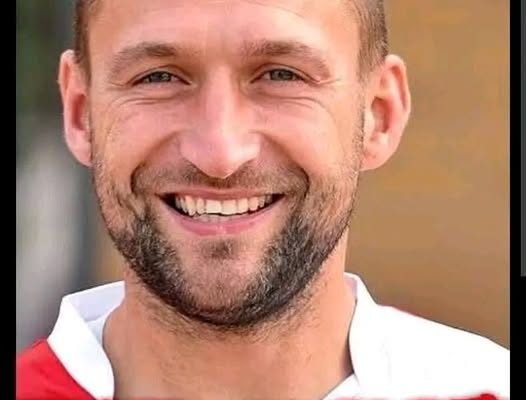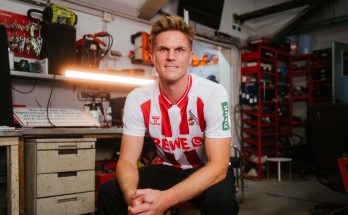Union Berlin, a club that has consistently punched above its weight in German football, has become the epicenter of conversation once again with a move that has caught fans, pundits, and football lovers off guard. The name Torsten Mattuschka, a legend at Union Berlin, is once more circulating in the media, but this time it is not as a player on the pitch, where he once dazzled fans with his skill and leadership. Instead, Mattuschka is returning to the club in a completely new role—one that carries significant responsibility and will no doubt shape the future of the club. The legendary midfielder has been appointed to a position in the club’s Presidential Office, a powerful and influential role that goes far beyond the scope of what he once contributed as a player.
The stir caused by Mattuschka’s return is not simply due to the fact that he was a crucial part of the club’s past; it is about what he represents for Union Berlin. For fans who lived through the club’s struggles, its rise from the lower leagues to the Bundesliga, and its eventual establishment as a respected force in German football, Mattuschka is more than just a former player. He is a symbol of Union’s identity, its ethos, and its connection to the supporters who have been the lifeblood of the club for decades.
Union Berlin, founded in 1966, has long had a unique position within the German football landscape. Historically, the club was relegated to the lower divisions, and its fanbase was often seen as underdog supporters who wore their loyalty to the team like a badge of honor. Union’s identity was built on community, resilience, and a deep bond with its fans, many of whom were part of the working-class neighborhoods surrounding the club’s home stadium, the Alte Försterei. This identity became even more important as the club rose through the ranks of German football.
During the late 1990s and early 2000s, Union Berlin began to stabilize and eventually enjoyed success in the 2. Bundesliga, Germany’s second tier. But it wasn’t until 2019, after years of struggle and heartache, that Union Berlin made their historic promotion to the Bundesliga. The club’s return to Germany’s top tier was a testament to the hard work, determination, and belief that ran through the veins of everyone associated with the club. Torsten Mattuschka, who had spent most of his playing days with Union Berlin, was an integral part of that journey.
Mattuschka was the quintessential Union player: gritty, passionate, and always playing with his heart on his sleeve. Over the course of his career at Union, he played a key role in the team’s successes. His leadership qualities on and off the field made him beloved by the Union faithful. With his smart passes, his crucial goals, and his ability to influence the game in the most critical moments, Mattuschka was undoubtedly one of the best players in the club’s history. More importantly, though, he became a symbol of Union’s rise from obscurity to prominence, the living embodiment of the club’s fighting spirit.
After retiring as a player, it was clear that Mattuschka’s love for Union Berlin was far from over. His deep connection with the club and its fans meant that even after hanging up his boots, he remained involved with Union, supporting the team from the stands and participating in various community-based projects. But to many, the announcement of his return to Union Berlin in such a high-profile administrative role seemed unexpected, even if not entirely surprising.
The role of a President in any football club carries with it immense weight. It’s not just a figurehead position; it is about making critical decisions that influence the direction of the club, from financial matters to strategic planning, to how the club relates to its supporters and the wider footballing world. The President of a club is often the face of the team when it comes to public relations, decision-making, and diplomacy. With this in mind, Mattuschka’s return to the club, but now in the corridors of power instead of on the field, is something of a full-circle moment.
One of the most exciting aspects of Mattuschka’s new role is the potential it holds for Union Berlin’s future. With Union now established in the Bundesliga and regularly competing against Germany’s biggest clubs, the next phase of the club’s development is crucial. The club’s leadership is tasked with maintaining Union’s identity and legacy while pushing the team to ever-greater heights. Mattuschka, with his deep understanding of the club’s values and culture, is in a unique position to help steer Union through this new phase.
While many clubs in Europe’s top leagues are driven by wealthy owners or large corporate entities, Union Berlin remains one of the few clubs where the fans truly have a voice. Union’s commitment to its fanbase is one of the reasons why it enjoys such a unique place in the footballing world. The fans aren’t just passive consumers of football; they are active participants in the club’s growth and success. This fan-centered ethos is something that has defined Union Berlin, and Mattuschka’s return to the club in such a pivotal role signals that the club’s leadership will continue to prioritize the interests of the supporters.
At the same time, Mattuschka’s new role raises interesting questions about the direction of the club, particularly in terms of the future balance between tradition and modernity. On one hand, Union Berlin is a club that has built its reputation on being different from the corporate-driven model that dominates European football. On the other hand, the club is now operating in the most competitive football league in the world. The demands for success are high, and the financial pressures are undeniable.
Mattuschka’s return suggests that Union Berlin will continue to be a club that values its traditions, but at the same time, it will embrace the new challenges of the modern football landscape. His leadership could very well serve as a bridge between the old and the new, ensuring that Union Berlin remains true to its roots while competing at the highest level. His understanding of the emotional and cultural bonds that tie the club and its supporters together could be invaluable in preserving what makes Union Berlin so special, even as the club pursues new sporting and financial ambitions.
Moreover, Mattuschka’s appointment could have a wider impact on the Bundesliga as a whole. The role of ex-players in the boardrooms of German clubs has always been a significant one, but with a growing trend toward the commercialization of football, the involvement of former players with deep roots in the club culture is becoming increasingly rare. Mattuschka’s return could set an example for other clubs, showing that it is possible to succeed in the business of football while staying true to the values that have made the sport so beloved.
It’s easy to understand why Union Berlin fans have reacted with such enthusiasm to the news of Mattuschka’s appointment. For them, it’s not just about a former player returning to the club—it’s about the symbolic return of a hero, someone who understands exactly what Union means to them. It’s a reminder that, while football may be a business, it is also a sport deeply rooted in community and passion. Mattuschka’s appointment in the Presidential Office signals that Union Berlin remains a club where these values are cherished, even as it competes in the highly commercialized world of modern football.
As Union Berlin prepares for the future, one thing is clear: the club has entered a new era. The departure of the old guard and the arrival of new faces in leadership positions are a natural part of any club’s evolution. But with Torsten Mattuschka’s return to the club, it’s a reminder that Union’s past and present are intimately linked. The legendary midfielder has always been more than just a player; he has been a part of the very fabric of Union Berlin. His return, now in a role of immense responsibility, provides a sense of continuity and hope for the future.
The legacy of Torsten Mattuschka is not confined to his days as a player on the pitch. Instead, it is now a part of the club’s DNA, something that will continue to resonate with fans as the club navigates the challenges of the modern football world. Union Berlin may be changing, but with Mattuschka in the Presidential Office, the club’s heart and soul remain firmly rooted in the values that have always defined it. And in this rapidly changing football landscape, that may be the greatest strength of all.



